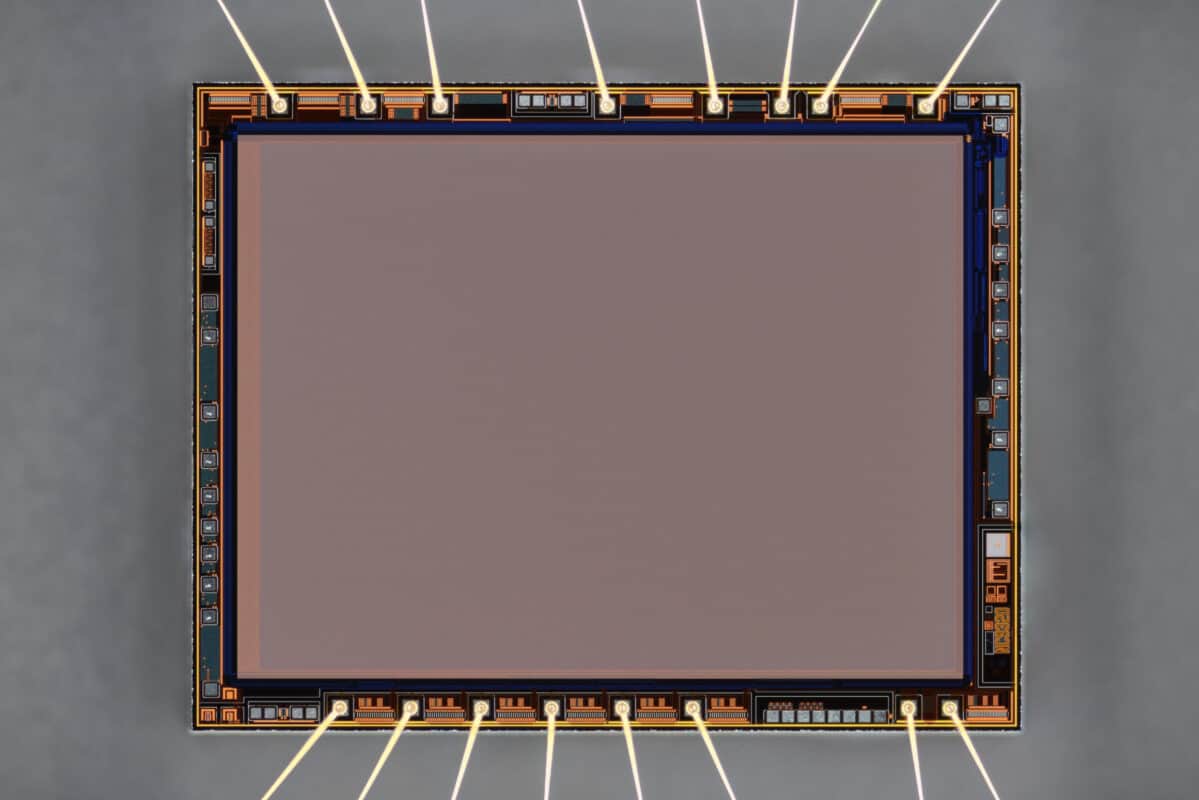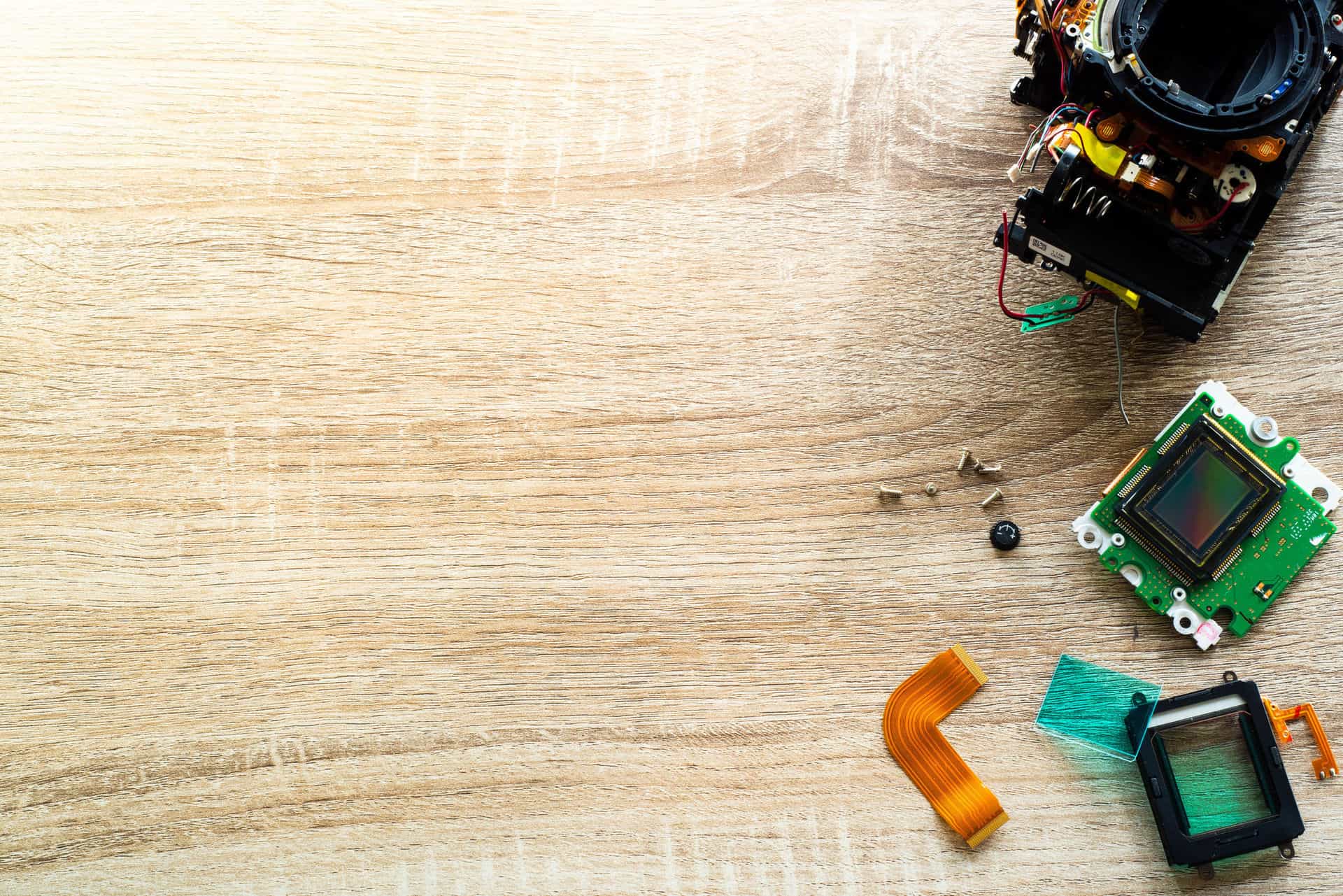As photographers, we view light as an integral tool of the trade. But have you ever wondered if bright lights damage camera sensors? We are constantly adjusting our light settings and shutters speeds, but how does this impact the health of the camera itself?
Your camera is at risk of suffering damage from bright lights such as studio lights, the sun, and lasers. To cause damage, the light must emit a high volume of heat energy. With proper precautions in place, you may be able to reduce this risk or avoid it entirely.
Let’s dig deeper to find out what types of light and lasers can cause damage to a camera sensor. We will also look at whether exposure time to light plays a role in damaging the sensor and the signs of a damaged camera sensor.
Table of Contents
How Can Bright Lights Damage a Camera Sensor?
The sensors in a camera function to absorb a lot of light. That is their main function. For the camera sensors to be damaged by bright lights, the light’s energy would have to be focused on a very tiny point on the sensor in order to have any ill effect.
An LED light, for example, is not powerful enough to harm a camera’s sensor unless you purposefully exposed your camera lens up close to the light for an extended amount of time.
An infrared light, on the other hand, does provide enough energy to potentially damage a camera sensor if it was exposed for too long.
The infrared light produces a higher volume of heat energy, and it is the heat energy that damages the sensors, not the light energy.
When a camera’s sensor is exposed to a bright light, like the sun, for instance, the sensor can become damaged due to heating.

For instance, if you are photographing or filming an eclipse with a professional grade camera then most likely, you are using a larger lens to get that perfect close up. This would let in enough light to damage the sensors especially with prolonged exposures.
There are filters you can get, which will be discussed later, that will protect your sensors or at least keep the damage to a minimum. You will also want to wait until you are ready to press the shutter before pointing the camera at the sun.
If you are using a point and shoot camera for a prolonged exposure to bright light such as an eclipse, the sensors will become damaged. This type of camera was primarily made for still shots.
However, you wouldn’t typically use a point and shoot for a prolonged exposure. You can still use it to take stills, and the chances of incurring damage if used in that capacity are slim.
Can a Laser Damage Camera Sensors?
As a kid, did you ever wonder why laser pointers were outlawed as quickly as they became popular? It was because lasers emit concentrated beams of light. These beams can heat sensitive surfaces and cause significant damage to the retinas of our eyes.
Lasers cause similar damage to your camera sensors, which are more susceptible than the humid eye. Damage from exposure to lasers can be relatively minor or it can have a severely damaging effect on your camera sensors.
In cases of minor danger, there may be small areas where some of the pixels don’t function correctly. This might not be noticeable if you are shooting the sky, water, or other area that is uniform in color.
Worse case scenarios include:
- Dead-pixel areas
- “Burn-in” of a laser image
- Horizontal or vertical line
If any of these things occur because of laser damage, the camera will no longer produce quality photos. Read the next section to learn more about the signs of damage to your camera sensor.
How Do You Know if Your Sensor Is Damaged?
If your camera has been exposed to bright lights or lasers, how can you tell if damage was indeed sustained by the sensors? You start with the photographs.
Telltale Signs That Your Sensor Has Been Damaged by Bright Lights
If you know that your camera has been exposed to bright lights or lasers but you’re not sure if it is damaged, look for the following phenomena in your photographs.
- Horizontal or vertical lines
- Dead pixels cause spots
- Hot pixels cause extra brightness
- Band of multi-colored lines
Horizontal and Vertical Lines Appear on Zones of Uniform Color
If your photographs are processed, and you are seeing horizontal and vertical lines across zones of uniform color like sky or water, then your sensor is damaged. The is the same effect you see when your printer is running out of colored ink and creates lines on the page.
Dead Pixels Cause Spots to Appear on Your Photos
Spots appearing on your photographs may, at first glance appear to be a smudge of dirt or a blemish. They show up where your sensor has been overheated, and it is not processing the light of the image anymore.
If you have been using the video function on your camera and are consistently seeing red in certain parts of the video, then your sensor has been damaged and caused a group of pixels to effectively die.
To double check that it’s not just dirt, you can clean your sensor or take it to a camera repair shop for cleaning. If the spots are still showing up after the cleaning, then your sensor has been damaged due to exposure to bright lights and heat energy.
Hot Pixels Light up Your Photos
In contrast to dead pixels that cause dark spots, hot pixels create areas on the photo that are brighter than the rest of the photo.
While this phenomenon is not as common as some of the other symptoms, it occurs when the sensor has been exposed to hot lights or other heat sources.
Sometimes photos will take on a bright blue quality as well, like an overexposed photograph.
Band of Multi-colored Lines Appears on Your photos
When you see bands of multi-colored lines, this is a sign that your sensor has been damaged due to white lights.
Sometimes you might also see where a brighter color overshadows the other colors (for example a cloud of magenta in the sky) in one section of the photo. If this is a recurring pattern and not an isolated incident, then it is a sign that the sensor is damaged.
How Can You Prevent Damage to Your Camera Sensor?
You can prevent or at least reduce the damage to your camera sensors brought on by bright lights. Here’s what you can do.
- Don’t point your camera directly towards bright lights
- Invest in a UV Filter
- Adjust shutter speeds
Keep Your Camera from Directly Pointing Towards Bright Lights
The easiest and most obvious way to prevent light damage to your camera sensors is to just not point your camera directly at
- The sun
- Bright lights
- Lasers
This seems obvious, but what if you are photographing an outdoors event like a solar eclipse, or a concert where there are lots of lights and lasers? It can be difficult to avoid the lights sometimes, especially if they are integral to the shot.
Be mindful in how you are setting up the shot, and be aware of the potential damage that can happen.
Adjust Shutter Speeds for Minimal Light Exposure
If taking pictures around bright lights is inevitable, one way to minimize exposure to bright lights is to adjust the shutter speed.
At a higher shutter speed, less light will get in and decrease your chances of damaging the sensors.
Invest in a UV Filter
Always make sure to buy a UV filter for your camera. The UV filter can be compared to putting sunscreen on to prevent sunburns. This protects the lens and the sensors by blocking UV rays on an extra sunny day or at higher altitudes.
If you are photographing a solar eclipse, make sure to use a high-density solar filter made from black-tinted glass to prevent or at least reduce damage to the camera’s sensors.

